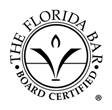defense blog
information and views on criminal defense law
The veteran criminal defense law firm of L. D. Murrell provides additional information about current topics, trends and news in criminal defense cases and fields on their blog, Defense Blog. Sign-up to receive updates and new information on criminal defense law.
Florida's Patient Brokering Statute is Unconstitutional
12/07/2018 - L.D. Murrell, P.A. - Link to This Entry
In the past few years Palm Beach County has become ground zero in law enforcement’s efforts to prosecute and convict unscrupulous providers of drug rehabilitation services. The State Attorney has created a special division dubbed the “Sober Homes Task Force†and assigned it the duty of obtaining convictions of those arrested. To date the favorite tool of the Task Force has been F.S. 817.505 which makes “patient brokering†a crime. “Patient brokering†is essentially defined under the statute as the payment of kick-backs in return for patient referrals. In my opinion, the statute is an unconstitutional delegation of legislative authority under the Florida State Constitution.
Our state constitution prohibits one branch of government from exercising the duties delegated to a different branch. Florida courts have given this prohibition a very strict interpretation over the years. Because of that, F.S. 817.505(3)(a) is fatally defective.
The state statute is modeled after a very similar federal statute, 42 USCs.1320a-7b(b). When the federal statute was created, it contained approximately ten “safe harbor provisionsâ€, business practices which were deemed not to be violations of the kick-back statute. Since that time, Congress and the Department of Health and Human Services have created many more safe harbors, more than double the original number. Our state statute adopted the “safe harbors†that existed at the time F.S. 817.505 was enacted, and any safe harbors adopted by Congress or HHS in the future. That gives Congress or HHS the authority to “make Florida law†and violates our State Constitution.
We recently filed a motion to declare F.S. 817.505 unconstitutional. The State’s response seemed to concede that our argument was correct, but then wandered off course in a very confusing manner. The trial court has taken the matter under advisement and we are awaiting a decision. Anyone facing prosecution under F.S. 817.505 should raise a similar argument. I think it will eventually be a winner.










